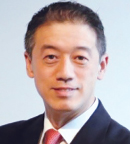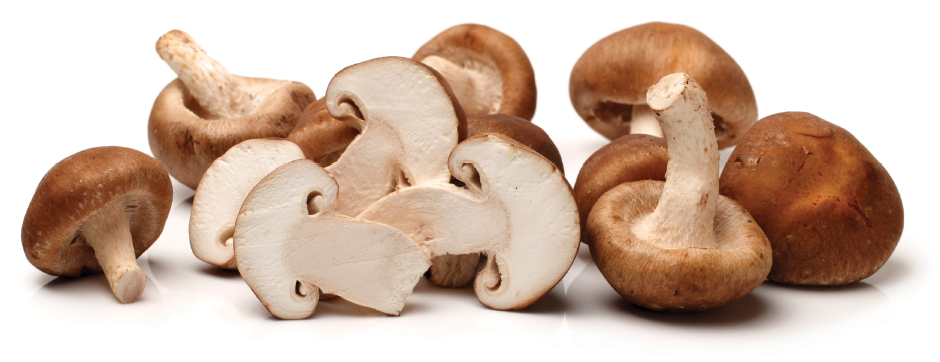The ASCO Post’s Integrative Oncology series is intended to facilitate the availability of evidence-based information on integrative and complementary therapies sometimes used by patients with cancer. In this installment, Gary Deng, MD, PhD, and Jyothirmai Gubili, MS, focus on active hexose correlated compound (AHCC), which contains polysaccharides extracted from shiitake mushroom mycelia and exerts immunomodulatory effects. Potential benefits with this compound in patients with cancer have been reported in a few uncontrolled or nonrandomized studies.

Gary Deng, MD, PhD

Jyothirmai Gubili, MS
Overview
A fermented extract produced from the mycelia of shiitake mushroom, AHCC comprises polysaccharides, amino acids, and minerals. It has been proposed to have health benefits that are mediated by immunomodulatory and antitumor properties.
The supplemental forms, sold as capsules, tablets, and softgels, are used to support the immune system, as well as to prevent and treat cancer.
The Science
AHCC is a rich source of alpha-1,4-glucans, which are thought to enhance its biologic effects. Preclinical studies have shown that it has anti-inflammatory1 and antioxidant effects2; enhances resistance against bacterial3 and viral infections4; and exerts anticancer effects.5-7 It was also found to have synergistic effects with gemcitabine in pancreatic cancer cells8 as well as increased the antitumor activity of cisplatin in a murine model, along with mitigating the side effects of the chemotherapy agent.9

In healthy human subjects, AHCC (3 g/d for 4 weeks) was shown to increase dendritic cell number and function10; enhance CD4-positive and CD8-positive immune responses, which were sustained up to 30 days after discontinuing supplementation11; and improve antibody response to influenza vaccine (at 3 g/d for 3 weeks, post vaccination).12
AHCC has been investigated for its potential anticancer effects, but data are limited. In a prospective cohort study involving patients with hepatocellular carcinoma (n = 269), 113 received AHCC (3 g/d, until last follow-up date or death) after curative surgery. Researchers reported a significantly longer disease-free period (P = .0277) and increased overall survival (P = .0009) in the group that received AHCC compared with the controls.13
AHCC may also help to alleviate adverse effects associated with chemotherapy. In patients with unresectable pancreatic ductal adenocarcinoma receiving gemcitabine, supplementation (6 g/d for 2 months) suppressed C-reactive protein elevation and albumin decline (P = .0012). The frequency of taste disorder caused by gemcitabine was reduced as well (P = .0007), along with the frequency of grade 3 events in the modified Glasgow Prognostic Score (P = .0005).14
In another trial, 24 patients with advanced cancer received their first round of chemotherapy without AHCC and the second round, with AHCC (3 g/d). The authors reported that the DNA levels of herpes virus type 6 (HHV-6), which increased after chemotherapy, dropped significantly after consumption of AHCC. Improvements were also observed in quality-of-life scores, hematologic toxicity, and hepatotoxicity.15
Guest Editor

Jun J. Mao, MD, MSCE
However, in an open-label, multicenter study of patients with early-stage prostate cancer (n = 74), AHCC (4.5 g/d for 6 months) was not effective in reducing prostate-specific antigen levels by 50% or more, with the exception of a single patient.16 But it was reported to be beneficial in reducing anxiety in patients who had higher levels prior to supplementation (state anxiety, P = .0018; trait anxiety, P = .0099).
Proposed mechanisms underlying AHCC’s immunomodulatory effects include priming the TLR-2 and TLR-4 (toll-like receptor) gates at the intestinal epithelium.17 It was also shown to enhance natural killer cell activity to induce endogenous interleukin-126 and to improve response to influenza infection18 in murine models. Furthermore, AHCC afforded protection against disorders induced by oxidative stress2; improved resistance to West Nile virus by boosting T-cell response4; enhanced antitumor effects of fluorouracil by upregulating expression of BCL2-associated X protein, and downregulating B-cell lymphoma.19 It also increased resistance to bacterial infection,3 likely by augmenting inflammatory cytokine and chemokine expression.20
Suggested mechanisms for overcoming drug resistance in cancer cells include downregulation of heat shock factor 1, which induces heat shock protein 27, known to be involved in gemcitabine resistance in pancreatic cancer cells.21 AHCC also exerted beneficial effects in patients with hepatocellular carcinoma and cirrhosis13 by regulating nitric oxide production.22
Adverse Reactions
Consumption of AHCC (4.5 g/d for 6 months) resulted in itching and diarrhea in a study of patients with early-stage prostate cancer.16
Herb-Drug Interactions
• Cytochrome P450 substrates: AHCC has been shown to induce CYP450 2D6 in an ex vivo model and may render substrate drugs such as doxorubicin and ondansetron less effective.23
• Aromatase inhibitors: AHCC was reported to induce aromatase in an orthotopic mouse model and may negatively affect the activity of aromatase inhibitors such as letrozole.24
The clinical significance of these interactions has yet to be determined.
Summary
OF NOTE
Physicians should be aware of the growing interest by patients in nutritional products such as active hexose correlated compound for preventing and treating cancer and their potential for interactions with some prescription drugs.AHCC contains polysaccharides extracted from shiitake mushroom mycelia and exerts immunomodulatory effects. Potential benefits in patients with cancer have been reported in a few uncontrolled or nonrandomized studies, but randomized controlled trials are needed. Nonclinical studies suggest that this compound may influence activities of CYP2D6 and aromatase. Caution is warranted in corresponding clinical scenarios.
Dr. Deng is Medical Director, Attending Physician, and Clinical Member at Integrative Medicine Service, Memorial Sloan Kettering Cancer Center, New York. Ms. Gubili is an Editor, also at Integrative Medicine Service, Memorial Sloan Kettering Cancer Center, New York.
DISCLOSURE: Dr. Deng and Ms. Gubili reported no conflicts of interest.
REFERENCES
1. Mascaraque C, Suárez MD, Zarzuelo A, et al: Active hexose correlated compound exerts therapeutic effects in lymphocyte driven colitis. Mol Nutr Food Res 58:2379-2382, 2014.
2. Ye S-F, Ichimura K, Wakame K, et al: Suppressive effects of active hexose correlated compound on the increased activity of hepatic and renal ornithine decarboxylase induced by oxidative stress. Life Sci 74:593-602, 2003.
3. Aviles H, Belay T, Fountain K, et al: Active hexose correlated compound enhances resistance to Klebsiella pneumoniae infection in mice in the hindlimb-unloading model of spaceflight conditions. J Appl Physiol 95:491-496, 2003.
4. Wang S, Welte T, Fang H, et al: Oral administration of active hexose correlated compound enhances host resistance to West Nile encephalitis in mice. J Nutr 139:598-602, 2009.
5. Kidd PM: The use of mushroom glucans and proteoglycans in cancer treatment. Altern Med Rev 5:4-27, 2000.
6. Yagita A, Maruyama S, Wakasugi S, et al: H-2 haplotype-dependent serum IL-12 production in tumor-bearing mice treated with various mycelial extracts. In Vivo 16:49-54, 2002.
7. Kuhara K, Tokuda K, Kitagawa T, et al: CUB Domain-Containing Protein 1 (CDCP1) is down-regulated by active hexose-correlated compound in human pancreatic cancer cells. Anticancer Res 38:6107-6111, 2018.
8. Suenaga S, Kuramitsu Y, Kaino S, et al: Active hexose-correlated compound down-regulates HSP27 of pancreatic cancer cells and helps the cytotoxic effect of gemcitabine. Anticancer Res 34:141-146, 2014.
9. Hirose A, Sato E, Fujii H, et al: The influence of active hexose correlated compound (AHCC) on cisplatin-evoked chemotherapeutic and side effects in tumor-bearing mice. Toxicol Appl Pharmacol 222:152-158, 2007.
10. Terakawa N, Matsui Y, Satoi S, et al: Immunological effect of active hexose correlated compound (AHCC) in healthy volunteers: A double-blind, placebo-controlled trial. Nutr Cancer 60:643-651, 2008.
11. Yin Z, Fujii H, Walshe T: Effects of active hexose correlated compound on frequency of CD4+ and CD8+ T cells producing interferon-γ and/or tumor necrosis factor-α in healthy adults. Hum Immunol 71:1187-1190, 2010.
12. Roman BE, Beli E, Duriancik DM, et al: Short-term supplementation with active hexose correlated compound improves the antibody response to influenza B vaccine. Nutr Res 33:12-17, 2013.
13. Matsui Y, Uhara J, Satoi S, et al: Improved prognosis of postoperative hepatocellular carcinoma patients when treated with functional foods: A prospective cohort study. J Hepatol 37:78-86, 2002.
14. Yanagimoto H, Satoi S, Yamamoto T, et al: Alleviating effect of active hexose correlated compound (AHCC) on chemotherapy-related adverse events in patients with unresectable pancreatic ductal adenocarcinoma. Nutr Cancer 68:234-240, 2016.
15. Ito T, Urushima H, Sakaue M, et al: Reduction of adverse effects by a mushroom product, active hexose correlated compound (AHCC) in patients with advanced cancer during chemotherapy. Nutr Cancer 66:377-382, 2014.
16. Sumiyoshi Y, Hashine K, Kakehi Y, et al: Dietary administration of mushroom mycelium extracts in patients with early stage prostate cancers managed expectantly: A phase II study. Jpn J Clin Oncol 40:967-972, 2010.
17. Mallet J-F, Graham É, Ritz BW, et al: Active hexose correlated compound (AHCC) promotes an intestinal immune response in BALB/c mice and in primary intestinal epithelial cell culture involving Toll-like receptors TLR-2 and TLR-4. Eur J Nutr 55:139-146, 2016.
18. Nogusa S, Gerbino J, Ritz BW: Low-dose supplementation with active hexose correlated compound improves the immune response to acute influenza infection in C57BL/6 mice. Nutr Res 29:139-143, 2009.
19. Cao Z, Chen X, Lan L, et al: Active hexose correlated compound potentiates the antitumor effects of low-dose 5-fluorouracil through modulation of immune function in hepatoma 22 tumor-bearing mice. Nutr Res Pract 9:129-136, 2015.
20. Aviles H, O’Donnell P, Orshal J, et al: Active hexose correlated compound activates immune function to decrease bacterial load in a murine model of intramuscular infection. Am J Surg 195:537-545, 2008.
21. Tokunaga M, Baron B, Kitagawa T, et al: Active hexose-correlated compound down-regulates heat shock factor 1, a transcription factor for HSP27, in gemcitabine-resistant human pancreatic cancer cells. Anticancer Res 35:6063-6067, 2015.
22. Matsui K, Kawaguchi Y, Ozaki T, et al: Effect of active hexose correlated compound on the production of nitric oxide in hepatocytes. J Parenter Enteral Nutr 31:373-380, 2007.
23. Mach CM, Fugii H, Wakame K, et al: Evaluation of active hexose correlated compound hepatic metabolism and potential for drug interactions with chemotherapy agents. J Soc Integr Oncol 6:105-109, 2008.
24. Mathew L, Gaikwad A, Gonzalez A, et al: Evaluation of active hexose correlated compound (AHCC) in combination with anticancer hormones in orthotopic breast cancer models. Integr Cancer Ther 16:300-307, 2017.

